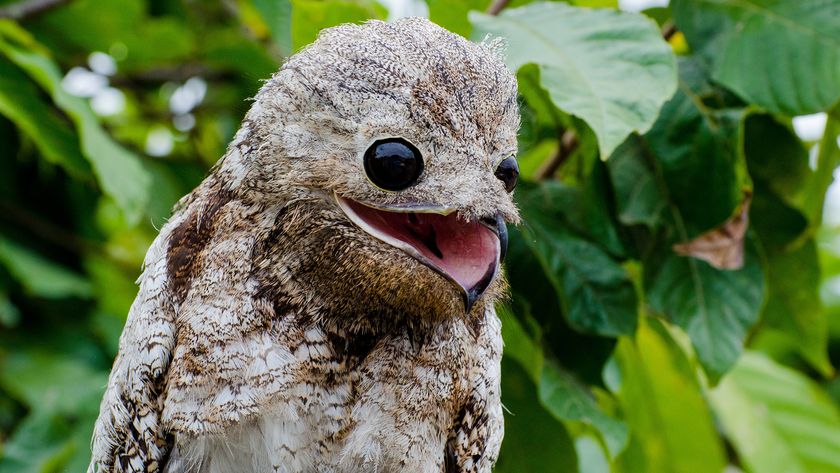In Photos: Watch an Eagle Take Down a Drone
Airborne warriors
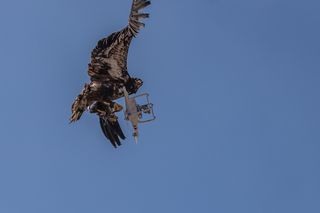
Dutch police have spent the past year testing trained eagles as a means of safely disabling hostile drones in public spaces. The tests were so successful that the police recently purchased juvenile eagles to train as future members of the force, working with officers to respond swiftly and efficiently to threats posed by airborne drones.
[Read the full story about the drone-disabling eagles]
Ready for action
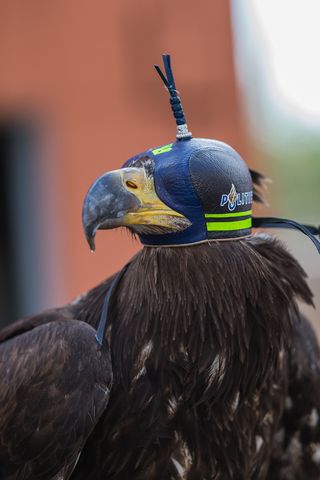
Dutch National Police (DNP) officials said in a statement that eagles will be deployed against hostile drones alongside other forms of technology designed to safely disable threats from the air.
Sighting the target
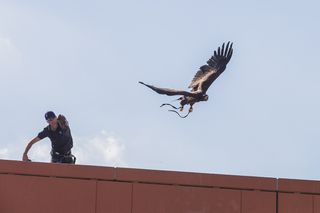
During a staged demonstration, an actor played a diplomat who was "threatened" by a drone's appearance during a public appearance. Eagles positioned atop nearby buildings demonstrated a swift response and quickly brought the drone down.
[Send in the Eagles! Dutch Police Use Avians to Deter Drones | Video]
Talons at the ready
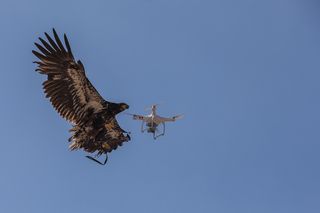
The eagles working with the Dutch police have been trained to treat drones as though they were prey, knocking them out of the air.
Neutralizing the threat
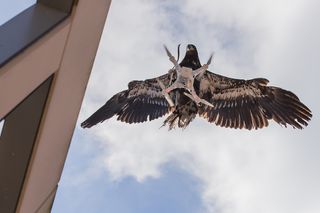
The DNP's young eagle recruits have wingspans that currently measure about 3.3 feet (1 meter) long. When the eagles are fully grown, their wings could extend between 5.9 and 7.5 feet (1.8 and 2.3 m).
Sign up for the Live Science daily newsletter now
Get the world’s most fascinating discoveries delivered straight to your inbox.
Grounded!
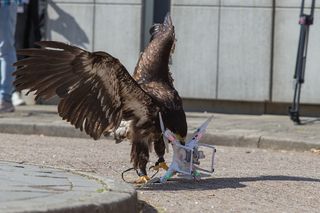
After the eagles attack the drones mid-air and knock them out of the sky, they guard the drones on the ground until police officials can remove them safely from public areas. According to a DNP statement, the young eagles that were recently purchased for training will be ready for action in about six months.

Mindy Weisberger is an editor at Scholastic and a former Live Science channel editor and senior writer. She has reported on general science, covering climate change, paleontology, biology and space. Mindy studied film at Columbia University; prior to Live Science she produced, wrote and directed media for the American Museum of Natural History in New York City. Her videos about dinosaurs, astrophysics, biodiversity and evolution appear in museums and science centers worldwide, earning awards such as the CINE Golden Eagle and the Communicator Award of Excellence. Her writing has also appeared in Scientific American, The Washington Post and How It Works Magazine. Her book "Rise of the Zombie Bugs: The Surprising Science of Parasitic Mind Control" will be published in spring 2025 by Johns Hopkins University Press.
